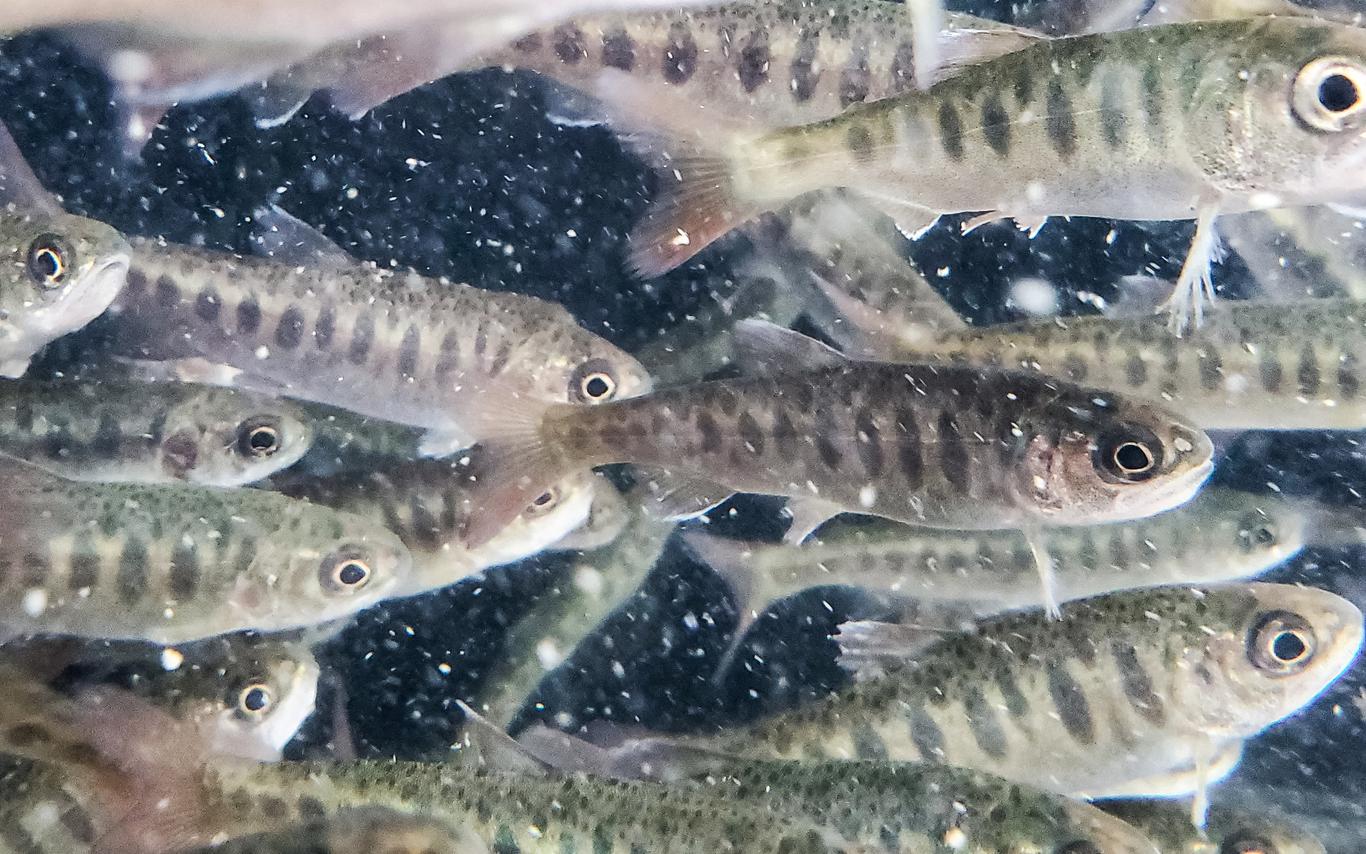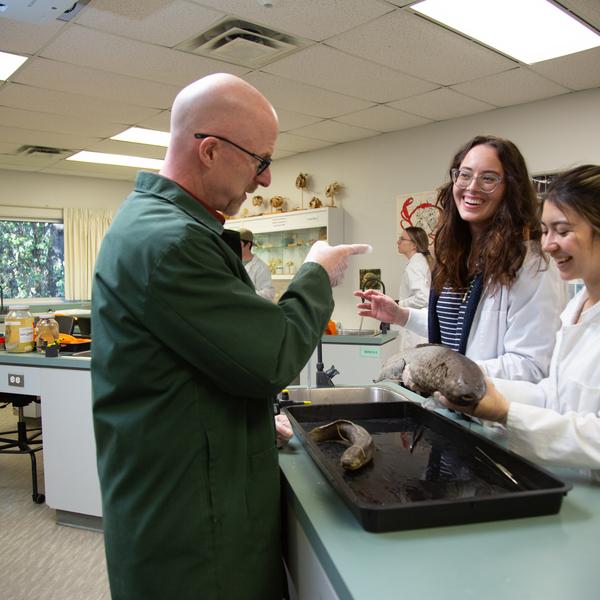Start your post-secondary journey here!
Are you new to post-secondary studies? Then the two-year Diploma in Fisheries and Aquaculture Technology Program will provide you with background academic theory, as well as, extensive hands-on training in industry standards.
The 2-year Fisheries and Aquaculture Technology Diploma Program starts a new group of students every other year. The next intake is Fall 2027. Apply now for a Fall 2027 start and/or express interest for more information and to stay connected.
Admission
Here's what you need:
Required
- General admission requirements apply
- English 12 with minimum “C” grade, or equivalent
- A minimum “C” grade in one of Principles of Mathematics 11, Applications of Mathematics 11, or Foundations of Mathematics 11, or equivalent
- Biology 11 with a minimum “C” grade, or equivalent
- Interview may be required
Recommended
- Physics 12 and other science courses are highly recommended
- Additional English courses that lead to improved writing skills are invaluable
Diploma Program Outline
First Year
During the Fall semester students participate in courses such as: (# credits)
- FISH 115: Life History and Management of Salmonids (3)
- FISH 123: Concepts in Biology (4)
- FISH 127: Introduction to Salmonid husbandry (3)
- FISH 132: Aquatic Habitats (3)
- FISH 161: Fisheries and Aquaculture Technician Skills I (1)
- ENGL 115: University Writing & Research (3)
- FISH 171*: Fisheries and Aquaculture Work Experience I (1)
- FISH 191**: Applied Techniques in Aquatic Systems & Fisheries I (3)
During the Spring semester students participate in courses such as:
- FISH 124: Biology of Fishes (4)
- FISH 133: Aquatic Plant Ecology & Culture (3)
- FISH 162: Fisheries and Aquaculture Technician Skills II (1)
- FISH 172*: Fisheries and Aquaculture Work Experience II (1)
- FISH 192**: Applied Techniques in Aquatic Systems & Fisheries II (3)
- MATH 181: Intro to Statistics (3)
- FISH 273***: Summer Work Experience
Second Year
Students in the second year are exposed to more advanced and specialized topics in fisheries and aquaculture.
During the Fall semester students participate in courses such as:
- FISH 205: Invertebrate Zoology (3)
- FISH 231: Non-Salmonid Aquaculture (3)
- FISH 241: Fish Health (3)
- FISH 253: Fisheries Engineering I—Hydrology (3)
- FISH 281: Freshwater Fisheries Field Techniques (3)
- FISH 271*: Fisheries and Aquaculture Work Experience III (2)
- FISH 291**: Applied Techniques in Aquatic Systems & Fisheries III (3)
During the Spring semester students participate in courses such as:
- FISH 222: Larval Rearing & Invertebrate Culture (3)
- FISH 223: Introduction to Fisheries Management (3)
- FISH 254: Fisheries Engineering II—Hydraulics (3)
- FISH 255: Fish Habitat Assessment and Rehabilitation (3)
- FISH 272*: Fisheries and Aquaculture Work Experience IV (2)
- FISH 273***: Summer Work Experience (0)
- FISH 292**: Applied Techniques in Aquatic Systems & Fisheries III (3)
* Fisheries and Aquaculture Work Experience I/II/III/IV (FISH 171/172/271/272): In addition to course work, students participate in weekly practical field placements at federal & provincial salmon enhancement hatcheries, private fish and shellfish hatcheries & grow out sites, Fisheries and Oceans Canada (DFO), various provincial ministries, non-profit organizations, and environmental consulting companies. In the first year, students are exposed to work sites, fulfill certification and job searching activities, and rotate through some placements. In the second year, students choose their practicum site and stay there for the entire year.
**Applied Techniques in Aquatic Systems & Fisheries I/II/III/IV (FISH 191/192/291/292): Students also work one half day each week on a fisheries and aquaculture related project such as algae culture, aquaponics, fish health, salmon stock assessment, sturgeon culture, or shellfish culture. A Fisheries and Aquaculture Department faculty member coordinates each project. Activities are available based on faculty and resources available, and thus may change year to year.
***Students will work in an appropriate fisheries or aquaculture summer jobs between their first and second year. Assistance in finding jobs is provided by VIU Faculty, and students will receive credit for the summer practicum courses on completion of a presentation on their experiences. Check out the jobs page for employment opportunities!
Visit the Program Course Calendar for current course descriptions, credits and configuration of each course for the program.

